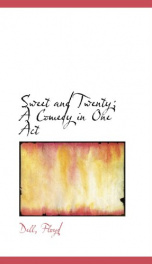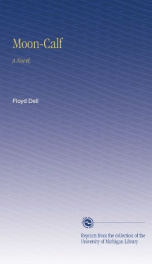were you ever a child

This volume is from 1919 and discusses the changes facing the American educational system. Book Reviews:" To have written a book of this sort that is at once sound and captivating is no mean achievement."..... The Survey. " It is a book remarkable for that kind of imagination which relates everything it touches to the fundamental concerns of life, for an intellectual honesty, and for so sharp a sense of democracy that it extends even to the child." ....N. Y. Tribune. "A wholly delightful book on education." ....Chicago Tribune. "Written in a way to appeal to many people who ordinarily would not read books about education." ....American Library Association BooklistFrom the book's Preface:When a fire-torn structure is about to fall in ruins, and some one says to the crowd, Look! that crack in the wall is getting wider! The beams on this side are all burned away, and it will fall in a minute. Stand clear! " — his remarks might perhaps be termed a criticism of an old institution. And similarly, when some one says, " Get off the track! That's the new fast mail tooting down there, just around the bend! She goes ninety miles an hour and doesn't stop till she gets to New York! — it is in a sense a plea in behalf of a new movement. In that sense, the following pages are a criticism of the existing school system, and a plea for the New Education. The situation is in appearance less dramatic than that, but the danger is quite as real. Education is changing so rapidly, its familiar aspects are crumbling so swiftly and the new methods are arriving upon the scene so fast, that a large part of the adult public runs the risk of being intellectually knocked down and run over or left smothered among the ruins. If we want to understand what is about to happen — what is already happening — we must be prepared to discard our most cherished preconceptions on the subject, and look at it anew in the light of modern science — in the light of the most recent discoveries in economics, anthropology and psychology. We must be ready to face the most startling restatement of its purposes, the most ruthless revaluation of its methods. This book is a brief resume of the situation in the light of these discoveries. It attempts to show how the present school system became what it is, and why it is now in the throes of revolutionary change. It analyses the current conceptions upon which the existing system is based, and shows why these conceptions are inadequate to sustain the burden which education is called upon by twentieth century civilization to bear. It centres attention upon the two things which constitute, in their juxtaposition, the essential problems of education — namely, the nature of modern life and the nature of the child. About the author:Floyd Dell was among the most mature talents in the group of younger writers active in Greenwich Village in the period just before and after the first World War. A student of Freud, he was the first writer of stature to employ the methods of psychoanalysis in the writing of fiction. Floyd Dell was a political radical in his early years in New York, where he served as editor on The Masses and The Liberator, but he never submitted to any intellectual yoke nor participated in any "school." He has on that account often found himself out of step with his literary contemporaries not a proletarian, nor a "true" Freudian, indeed he was often assailed by one group or another as a deserter. But he has steadily retained his independence as a thinker and writer and has never compromised with fashion or with commerce. --This text refers to the Kindle Edition edition.
Info about the book
Author:
Series:
Unknown
ASIN:
B00313JXII
Rating:
3.5/5 (2)Your rating:
0/5
Languge:
English
Users who have this book
Users who want this book
What readers are saying
What do you think? Write your own comment on this book!
write a commentGenre
if you like were you ever a child try:
Do you want to exchange books? It’s EASY!
Get registered and find other users who want to give their favourite books to good hands!






